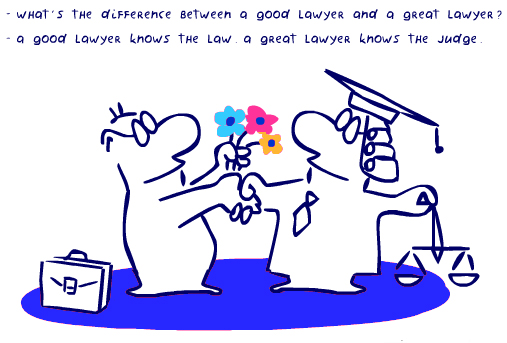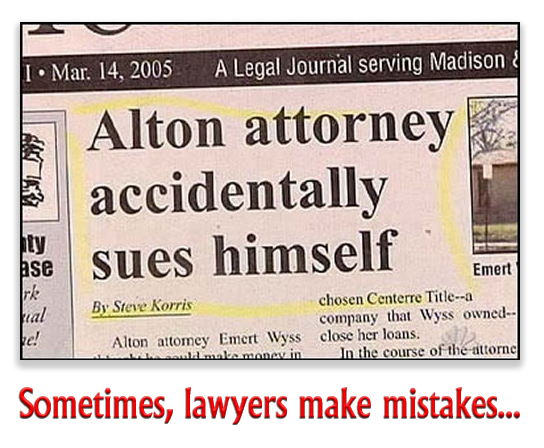We post news and comment on federal criminal justice issues, focused primarily on trial and post-conviction matters, legislative initiatives, and sentencing issues.
7th CIRCUIT SAYS KIDNAPPING NOT CRIME OF VIOLENCE
Antwon Jenkins was convicted of kidnapping and carrying a firearm during a crime of violence. He appealed, claiming the government had violated the plea agreement. He got 188 months for the kidnapping and another 120 months for the 18 USC 924(c) charge.
 Before the appeal was decided, Johnson v. United States was decided by the Supreme Court, holding the residual clause of the Armed Career Criminal Act was unconstitutionally vague. Antwon amended his appeal to claim that the 924(c) conviction was void, because kidnapping could only be a crime of violence under the residual clause, making the conviction unconstitutional under Johnson.
Before the appeal was decided, Johnson v. United States was decided by the Supreme Court, holding the residual clause of the Armed Career Criminal Act was unconstitutionally vague. Antwon amended his appeal to claim that the 924(c) conviction was void, because kidnapping could only be a crime of violence under the residual clause, making the conviction unconstitutional under Johnson.
Last Friday, the 7th Circuit agreed. It found that the first element of kidnapping – unlawfully seizing, confining, inveigling, decoying, kidnapping, abducting, or carrying away — does not necessarily require the use of force. The government argued that because the second element, holding for ransom or reward or otherwise, must be unlawful, it necessarily requires at a minimum the threat of physical force, but the Circuit disagreed. “Holding can be accomplished without physical force. For example, a perpetrator could lure his victim into a room and lock the victim inside against his or her will. This would satisfy the holding element of kidnapping under 18 USC § 1201(a) without using, threatening to use, or attempting to use physical force.”
The decision brings the 7th Circuit into harmony with other circuits that have held that similar crimes of false imprisonment and kidnapping by deception do not have physical force as an element.”
Antwon had not raised the issue in the trial court, but the 7th found that despite this, he had met the stringent FRCrimP 52(b) “plain error” standard for bringing it up for the first time on appeal. The Court said, “A 120‐month prison sentence for a nonexistent crime undermines the fairness of the judicial proceedings and cannot stand.”
United States v. Jenkins, Case No. 14-2898 (7th Cir., Feb. 24, 2017)

WHO YOU GONNA BELIEVE?
For state prisoners who have exhausted their habeas corpus claims, 28 USC § 2254 permits filing the claims in federal court. Such cases are not easy to win, because federal courts will go with the state court’s decision unless it’s absolutely unreasonable. Even filing the cases on time is tough.
Mostly, 2254 does not affect federal prisoners, but a decision last Friday by the 11th Circuit delivers a stark message that federal inmate litigants should take to heart: if your lawyer drops your case without telling you, that’s one thing. But if he or she is just stupid – even really, really stupid – you’re bound by counsel’s mistakes.
Ernest Cadet, a Florida prisoner, was denied habeas corpus relief in state court. Under the convoluted rules that apply to 2254 motions, his one-year clock then started running for filing in federal court. It stopped with only 5 days left when he filed for review with the Florida Supreme Court.

While his Supreme Court petition was pending, Ernie hired Attorney Goodman, a guy who may have been a “good man” but was a lousy attorney. When the Supreme Court turned Ernie’s motion down, the inmate told Goodman they didn’t have much time to file a 2254. He said inmates in the law library warned him that he had to act fast. Goodwin replied he had read the statute, and Ernie had a full year, asking “who are you going to believe, the real lawyer or the jailhouse lawyer?”
The correct answer was “the jailhouse lawyer.” Goodwin filed the motion within the time he thought Ernie had, but it really about a year late. The federal district court threw out the petition as untimely. Ernie appealed.
The 11th Circuit upheld the dismissal. Inmates love to talk about “equitable tolling” as an end run around statutory deadlines, but the plain fact, the Circuit said, is that equitable tolling is an extraordinary remedy “limited to rare and exceptional circumstances and typically applied sparingly.” To warrant equitable tolling, a prisoner has to show he has been pursuing his rights diligently but that some extraordinary circumstance prevented timely filing.
 The Court said attorney miscalculation of a filing deadline “is simply not sufficient to warrant equitable tolling, particularly in the post-conviction context where prisoners have no constitutional right to counsel.” The relevant distinction should be between attorney negligence – which is “constructively attributable to the client” – and “attorney misconduct that is not constructively attributable” to the client because counsel has abandoned the prisoner. A lawyer’s “near-total failure to communicate with petitioner or to respond to petitioner’s many inquiries and requests over a period of several years” might be abandonment. “Common sense,” Justice Alito concluded in a prior Supreme Court case, “dictates that a litigant cannot be held constructively responsible for the conduct of an attorney who is not operating as his agent in any meaningful sense of that word.”
The Court said attorney miscalculation of a filing deadline “is simply not sufficient to warrant equitable tolling, particularly in the post-conviction context where prisoners have no constitutional right to counsel.” The relevant distinction should be between attorney negligence – which is “constructively attributable to the client” – and “attorney misconduct that is not constructively attributable” to the client because counsel has abandoned the prisoner. A lawyer’s “near-total failure to communicate with petitioner or to respond to petitioner’s many inquiries and requests over a period of several years” might be abandonment. “Common sense,” Justice Alito concluded in a prior Supreme Court case, “dictates that a litigant cannot be held constructively responsible for the conduct of an attorney who is not operating as his agent in any meaningful sense of that word.”
The problem in this case is that Goodman never abandoned Ernie. He kept communicating, but arrogantly dismissed the possibility Ernie and his jailhouse lawyer friends might be right without doing as much as five minutes’ worth of research to see whether they might be.
Ernie “acted with reasonable diligence,” the Court said, “but the reasonable diligence and extraordinary circumstance requirements are not blended factors; they are separate elements, both of which must be met before there can be any equitable tolling.” Just because an agent (the lawyer) is grossly negligent does not mean he had abandoned his principal (the client).
Goodman was stupid, but he did not disappear on Ernie. The 11th held that “because the attorney is the prisoner’s agent, and under well-settled principles of agency law, the principal bears the risk of negligent conduct on the part of his agent… as a result, when a petitioner’s post-conviction attorney misses a filing deadline, the petitioner is bound by the oversight.
Cadet v. State of Florida DOC, Case No. 12-14518 (11th Cir., Feb. 24, 2017)

CAN YOU HEAR ME NOW?
In a remarkable decision handed down by the 4th Circuit last Thursday, a deaf inmate’s claim that the BOP violated his 8th Amendment and 1st Amendment rights by denying him a sign-language interpreter and videophone link.
 The inmate complained that he was denied an interpreter to assist at medical appointments, and to enable him to take a class required because of the nature of his offense. He also said communications with the outside was limited to an antiquated TTY phone device, which he could only use when a BOP staff person trained in TTY was available to supervise. Often, he said, he was denied TTY access because of staff shortages or just because of arbitrary reasons, and he could never use the TTY on nights or weekends.
The inmate complained that he was denied an interpreter to assist at medical appointments, and to enable him to take a class required because of the nature of his offense. He also said communications with the outside was limited to an antiquated TTY phone device, which he could only use when a BOP staff person trained in TTY was available to supervise. Often, he said, he was denied TTY access because of staff shortages or just because of arbitrary reasons, and he could never use the TTY on nights or weekends.
The Circuit reversed a district court decision that threw out all of the claims, saying the inmate did not have to show he had been harmed by the 8th Amendment deliberate indifference, just that there was a substantial risk of harm. As for the 1st Amendment claim, the Court swept away BOP claims of the security risks of a videophone, holding that the Bureau could easily monitor videophone calls just as it did TTY calls.
The BOP tried to derail the case by promising to provide interpreters in the future, stating that inmates would be provided “with a qualified interpreter… if necessary for effective communication during religious ceremonies or programs.” That was good enough for the district court, but the 4th swept the promises aside: “It is well established that a defendant’s voluntary cessation of a challenged practice moots an action only if subsequent events made it absolutely clear that the allegedly wrongful behavior could not reasonably be expected to recur,” the Court said. “Even if we ignore the equivocation inherent in the promise to provide interpreters ‘if necessary’ the statement amounts to little more than a ‘bald assertion’ of future compliance, which is insufficient to meet BOP’s burden.”
Heyer v. Bureau of Prisons, Case No. 15-6826 (4th Cir., Feb. 23, 2017)
– Thomas L. Root

